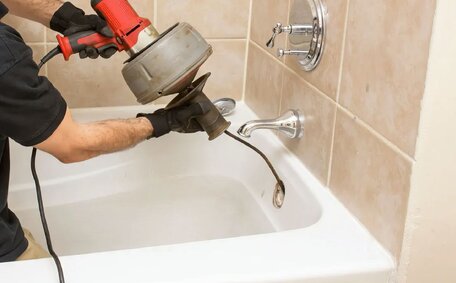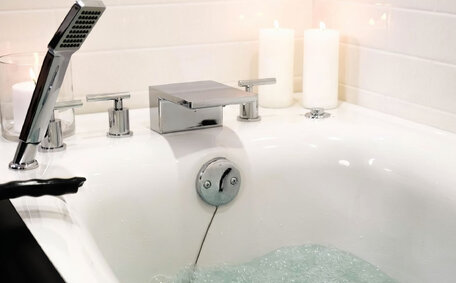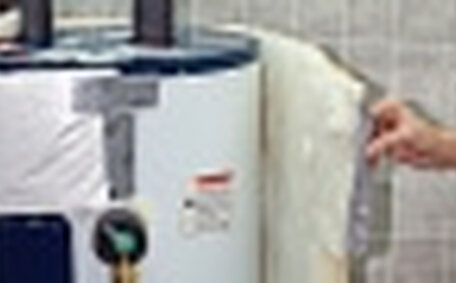Introduction to hot water systems and their lifespan
Hot water systems are an essential appliance in most Australian homes. They provide hot water for showering, washing dishes, doing laundry and more.
Hot water systems come in different types, including gas, electric, solar and heat pump systems. On average, a properly maintained hot water system will last between 8 to 20 years before needing replacement.
The lifespan of your hot water system depends on several factors like the type and quality of the unit. Water quality can impact lifespan as well, with hard water contributing to scale buildup and corrosion over time.
Higher quality materials and workmanship generally equate to longer lifespans. Usage patterns also play a role, with heavy usage shortening lifespan.
With regular maintenance like flushing, anode rod replacement and periodic inspections, you can maximise the lifespan of your hot water system. But eventually, all hot water heaters show signs of ageing like leakage, rust, strange noises and loss of heating performance. When these issues arise, it’s usually time to replace the unit.
Average lifespan of different types of hot water systems
There are several common types of hot water systems used in Australian homes, each with their own average lifespan:
Gas Storage Hot Water Systems
Gas storage hot water systems use gas burners to heat water stored in an insulated tank. A quality gas system can last 12-15 years on average. Lower quality units may last only 8-10 years before needing replacement.
Electric Storage Hot Water Systems
Electric storage systems use electric heating elements to heat a water tank. Average lifespan is 8-12 years. Glass-lined tanks tend to last longer than steel tanks.
Heat Pump Hot Water Systems
Heat pump systems extract heat from the air to warm water in a storage tank. They last 10-15 years on average. Units in hot climates may have shorter lifespans.
Solar Hot Water Systems
Solar hot water systems use solar collectors and solar energy to heat water. High quality solar systems can last 15-20 years. Maintenance is crucial to maximise lifespan.
Tankless Water Heaters
Tankless heaters provide hot water on demand without a tank. Good quality tankless heaters can last 15-20 years with proper care and maintenance.
Factors impacting lifespan of hot water systems
There are several key factors that can impact how long your hot water system lasts before it needs replacing:
Usage and DemandFrequent, heavy usage will wear out a hot water system faster than occasional, light usage. Large households with multiple bathrooms tend to have greater hot water demand, shortening the lifespan of the system.
Water Quality and Mineral ContentHard water with high mineral content can lead to lime and calcium buildup in the tank and pipes. This buildup reduces efficiency over time. Water softeners help mitigate this problem.
Installation and Maintenance Improper installation can lead to problems down the road. Lack of periodic maintenance like flushing and anode rod replacement also shortens the lifespan of hot water systems.
Brand and Build Qualityp>p>p>p>p>
Signs your hot water system needs replacing
p>p>p>
Making your hot water system last
To maximise the lifespan of your hot water system, proper maintenance and monitoring for issues are crucial.
Regular Maintenance and Servicing
Have a licenced plumber flush and service your hot water system annually. Flushing removes sediment buildup while servicing checks components like heating elements, anode rods, gas valves and thermostats. Replace the anode rod as needed.
Also have relief valves, pressure valves and expansion control valves checked and replaced if faulty. Keep the area around the heater clean and inspect connections and fittings for corrosion or leaks.
Monitoring for Issues
Frequently check that your hot water system is producing enough hot water at an adequate temperature and pressure. Strange new noises, frequent temperature fluctuations or a sudden spike in energy bills can indicate problems.
Watch for signs of rust, corrosion and leakage around fittings and valves. Immediately contact a plumber if you detect any drips or pooling water near the lower valves or fittings. Early detection and repair can prevent catastrophic tank failures.
With vigilant maintenance and monitoring, you can maximise the lifespan of your hot water heater and avoid unexpected replacements.
Choosing the right system
When it’s time to replace your ageing hot water system, choosing the right type and brand for your home’s needs is important for reliability, efficiency and longevity.
Consider Your Household’s Hot Water Usage
Think about how much hot water your household uses daily. Homes with 1 or 2 occupants can get by with a small to mid-sized system - around 160L to 250L tank capacity. Larger households with 3 or more occupants generally need a larger 270L+ gas or electric storage tank, or a continuous flow gas system.
Choose Gas, Electric, Heat Pump or Solar
Gas systems heat water faster than electric, but electric can be more economical depending on energy costs in your area. Heat pumps extract heat from the air, but aren’t as efficient in cold climates.
Solar harnesses the sun’s energy, but needs full sun exposure. Compare operating costs and energy ratings when deciding.
Select a Reputable Brand
Stick with established brands like Rheem, Dux, Aquamax or Rinnai that offer decent warranties. While cheaper no-name systems are tempting, quality and lifespan are often compromised. Spending a little more upfront can save on premature replacements.
Talk to Your Plumber
Consult with qualified plumbers to review your needs. They can advise the ideal system capacity, features and brand for your home and provide a full installation service. This helps ensure your new system will be correctly sized, configured and installed for maximum efficiency and longevity.
Conclusion
Hot water systems are essential in Australian households and have an average lifespan of 8 to 20 years. The actual lifespan depends on factors like usage patterns, water quality, brand quality and regular maintenance.
Signs like frequent breakdowns, lack of hot water and leaks indicate a hot water system is due for replacement. With annual servicing and flushing, plus monitoring for issues, you can extend the lifespan of your system.
When purchasing a replacement, choose a reputable brand like Rheem or Dux that suits your household’s hot water needs. Consulting a professional plumber can help ensure the system is correctly sized and installed for optimal efficiency and longevity.
For any plumbing issues, Marrickville Plumbing in Marrickville, Sydney offers prompt, professional service you can rely on. Contact us to schedule an appointment or get a quote for your plumbing needs.






